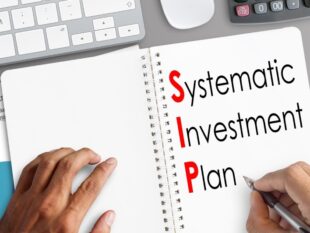Social Programs vs Socialism – Definition And Overview In 2021
by Abdul Aziz Mondal Community and Social Services Published on: 13 August 2021 Last Updated on: 27 July 2022

We must stop confusing social programs and socialism. These terms are a little bit similar, but in reality, both of these are two different categories of subjects. The social programs are entirely open and hands-on with every category of people present in society. This is the reason you must know the social programs vs socialism to know the difference between these two.
When you are searching for the correct answer to social programs vs socialism, you have to first start with the definition of socialism.
What Is Socialism?
Socialism has a deep-rooted meaning. Socialism is a form of economic production where the workers receive the maximum of the facility. They are dividing the profit among their co-workers based on their performances.
Socialism denotes the public ownership of the productions. On the other hand, social programs invite everyone to their scheduled program. And are not thinking about making some profit out of these programs.
Socialism is different from social programs. Here most production houses like factories and land are all controlled by the public. This is a significant difference from a capitalist society.
In a capitalist society, factory owners only think about their profit and offer a minimum salary to their employees. But in a socialist society, the employees are treated well. And generated income of the company does not have single ownership. The profit is distributed among the employees.
Many people are asking about social security. And you may be one of them, and you counted social security as socialism. But if you are going to know what is social programs vs socialism. Then you already know social security is not socialism.
The government is providing social security, but for the service provided, they are going to hire some company to provide the service to the citizens. Then again, when we are talking about social security, corporate companies are getting the maximum priority.
If you want to know the exact answer to social programs vs socialism, you must first know about the different forms of socialism.
What Are The Different Types Of Socialism?
Many are asking about the difference between socialism and democratic socialism. The correct socialist examples are Vietnam, Cuba, and North Korea.
Vietnam’s economy is entirely state-run. Cuba is a good example of a socialist country. Only healthcare and education are administered by the government.
North Korea is a socialist state. And organizing many social programs to support the poor citizen’s regular needs.
But before digging deep, take a look at the different forms of socialism.
Socialism has five forms. These five forms are going to solve your queries regarding social programs vs socialism.
1. Democratic Socialism
Do you want to know what democratic socialism vs socialism is? Here is the answer for you. In democratic socialism, one public elected administration looks after the production and the distribution. In real socialism, the public is not electing any representatives. They are in charge of all work.
2. Revolutionary Socialism
In revolutionary socialism, the revolutionary socialists do not believe socialism can exist in a capitalist society. The workers own the factory, and they look after the production more strategically. As the revolutionary socialists believed, they had to do more struggle to prove their existence.
3. Market Socialism
Here the production process is entirely under the control of the factory workers. And they are going to decide on the resource locations. Based on the worker’s decisions, market socialism is operating the production and distribution process.
4. Libertarian Socialism
Social programs vs socialism are similar to libertarian socialism. As the socialists believe, the capitalist is gone. The people are automatically turning into more socialists because this is the only way that is going to fulfill their primary needs. Primary needs are looked after by the social program.
5. Green Socialism
In the green socialism structure, large companies are given the preference to preserve the natural balance of nature. And a group of general people is looking after the activities to protect nature.
Now here comes the next part of the question. Take a look at the definition of a social program.
What Is A Social Program?
The social program of the United States is clearly designed to meet up the basic needs of the general population. Many people want to know the answer to defining social programs. The misconceptions are all-time here. The general people are thinking only to match up; the basic needs are the example of socialism.
As a result, the common people count medicare as socialism and public schools as socialism. But these are not examples of socialist activity. These belong to the group of social programs. In the United States Of America, food, medicine, places to stay, and education essentially belong to social programs.
In a one-word, even public schools are not going to count as a socialist program. The socialist program is where you are getting the actual cut from the business. You are giving your efforts to crop. And when you are making a profit. You and your co-workers are going to divide the share equally.
The public schools are run by the education tax of the local people. The local children are only receiving the chance to study there. So how could it be a social program?
You are giving the tax to the government. And your children are receiving the facility to study in the public school. Fundamentally, in an indirect way, you are paying for their education. Here the only difference is you are paying a little less than the private school education.
FAQ (Frequently Asked Questions):
Q1. What Is The Difference Between Socialism And Social Services?
In the debate between social programs vs socialism, social programs refer to various programs conducted for the improvement and betterment of society and its people. These include providing educational services, transportation services, security, and more. On the other hand, socialism is a concept or a school of thought that deals with the notion that workers or employees should own the means of production.
Q2. What Are Social Programs?
Social programs refer to various programs conducted for the improvement and betterment of society and its people. These include providing educational services, transportation services, security, and more.
Q3. Is Social Democracy The Same As Socialism?
No, social democracy and socialism are not the same things. As explained earlier, socialism is a school of thought that prioritizes the economic growth of the working class. On the other hand, social democracy refers to a democratic system where every citizen gbets equal job opportunities and income distribution according to their skill.
Q4. Is Socialism A Social Or Economic System?
Socialism falls under both social and economic systems. Here, the notion that is followed is that the society get equal distribution of wealth and power, especially in the hands of the working class.
Wrapping It Up:
In reality, socialism undoubtedly sounds good. But the harsh truth is, if you see the circumstances of democratic socialism, you will understand you are banishing capitalism. On the other hand, you are giving birth to a new form of capitalism. In that system, you may be earning well. But you have to work under an individual at the end of all. Social programs are entirely different from social programs; the prime focus is to fulfill the basic needs of each citizen. So what is your opinion regarding social programs vs socialism? Do not forget to share your opinion with us.
Read Also:







































































































